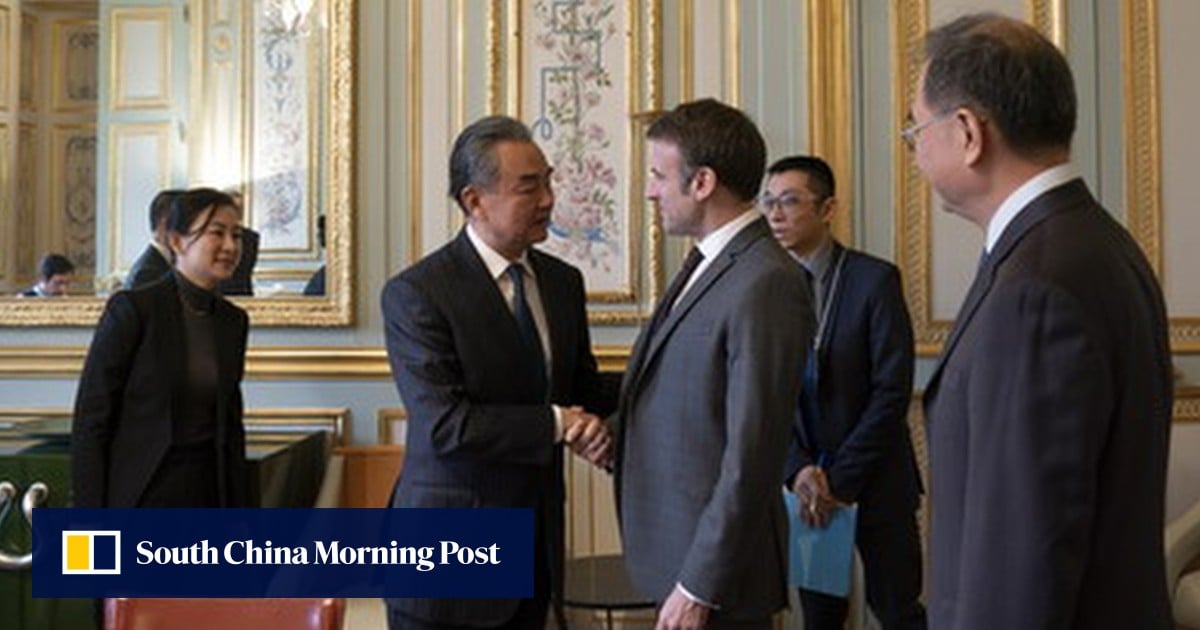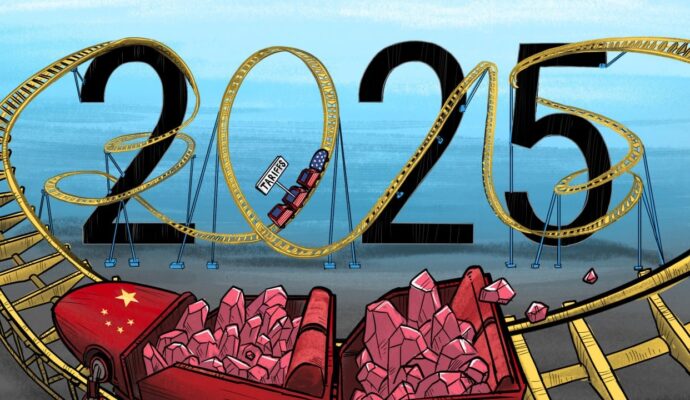
China opposes ‘unilateral sanctions’ over Ukraine as EU proposes new trade curbs
China opposes ‘unilateral sanctions’ over Ukraine as EU proposes new trade curbs
“China appreciates that France insists on being [an] independent [force] and hopes that France will continue to play a constructive role in the healthy and stable development of China-EU relations, enhance mutual trust, promote the integration of interests, and jointly serve as a stabilising force in today’s world.”
The Elysee Palace said Macron and Wang discussed the conflict during their meeting and that they shared the same goal of “contributing to peace”, according to broadcaster France 24.
According to Macron’s office, the French leader told Wang that he hoped China would “pressure Russia to return to the negotiating table”.
Russia’s invasion of Ukraine, which is about to enter its third year, has long clouded China’s relations with most EU countries as Beijing has maintained close ties with Moscow despite taking a neutral stance on the war.
EU’s plans for tougher China stance risk coming off the rails
EU’s plans for tougher China stance risk coming off the rails
During the Munich security conference, Wang said Beijing’s relations with Russia did not target any third party. Later in a separate meeting with his Ukrainian counterpart Dmytro Kuleba, Wang reaffirmed that China would not supply weapons to either side of the conflict.
Last month, China announced an anti-dumping investigation into brandy from the EU. France is a major producer of the liquor. The measure, which was supported by Paris, was seen as retaliation for Brussels’ probe into Chinese electric vehicles.
The EU has long complained about a €400 billion (US$430 billion) trade deficit with China and is weighing various measures to address the trade imbalance.
In talks with Macron, Wang said China would continue to open its market to France, adding that the country hoped France would also create a fair and just business environment for Chinese companies.
Despite strained ties, China appears to be trying to improve relations with the EU amid its rivalry with the US.
Last year, China waived entry visas for several European countries, including France, in an effort to boost exchanges with the continent.
In Wang’s talks with Bonne, both sides agreed to increase direct flights and strengthen cooperation in climate change, clean and nuclear energy and artificial intelligence.

